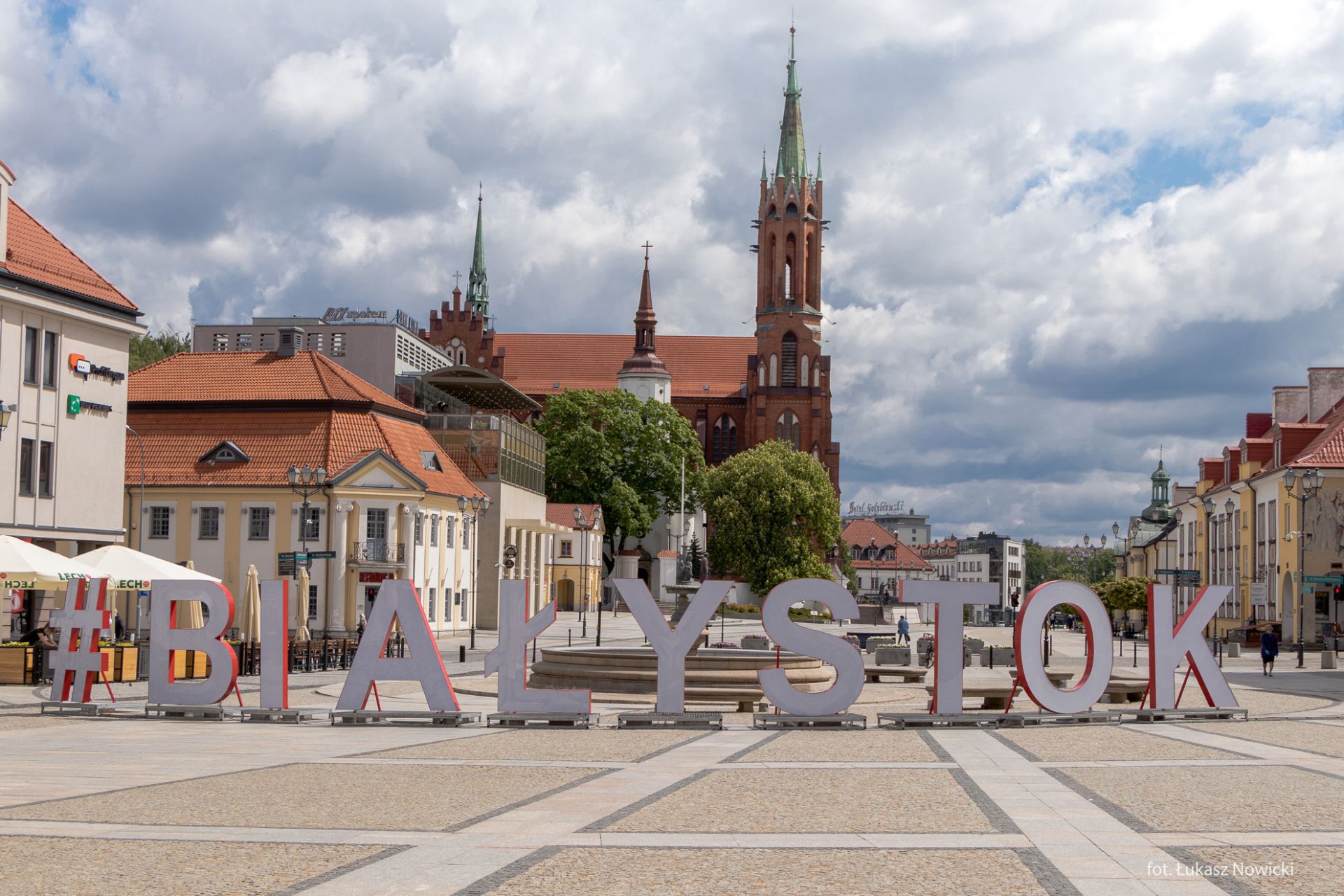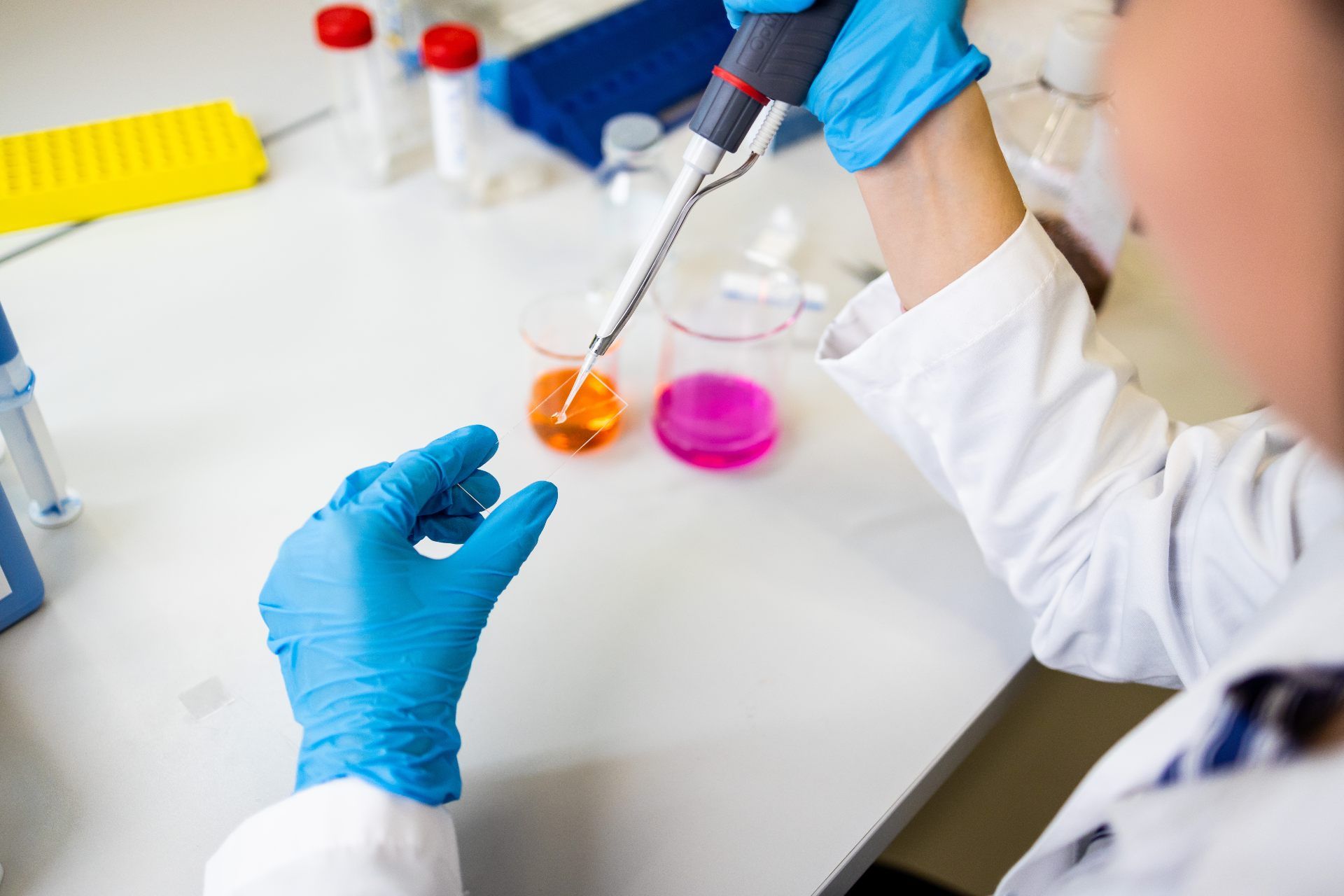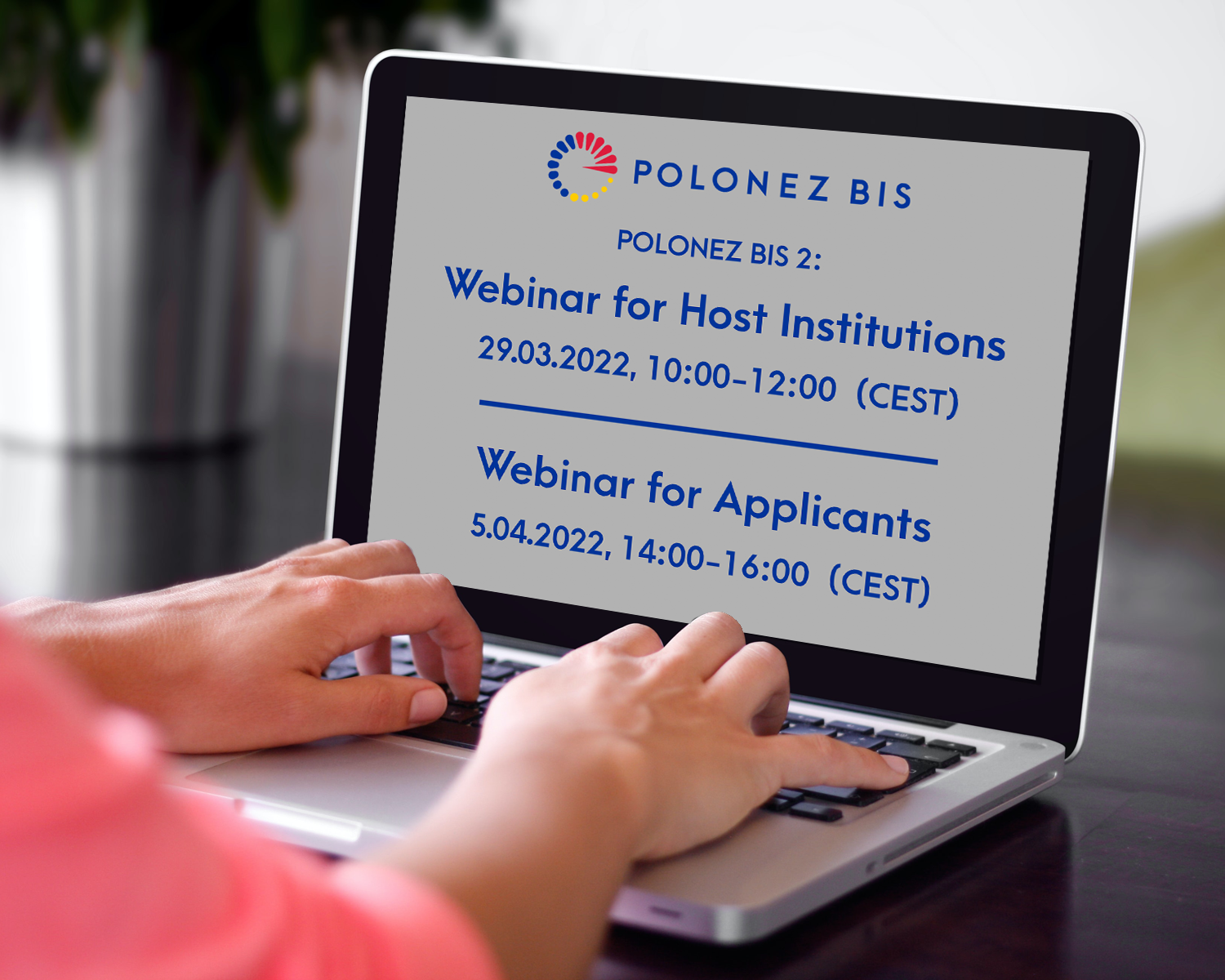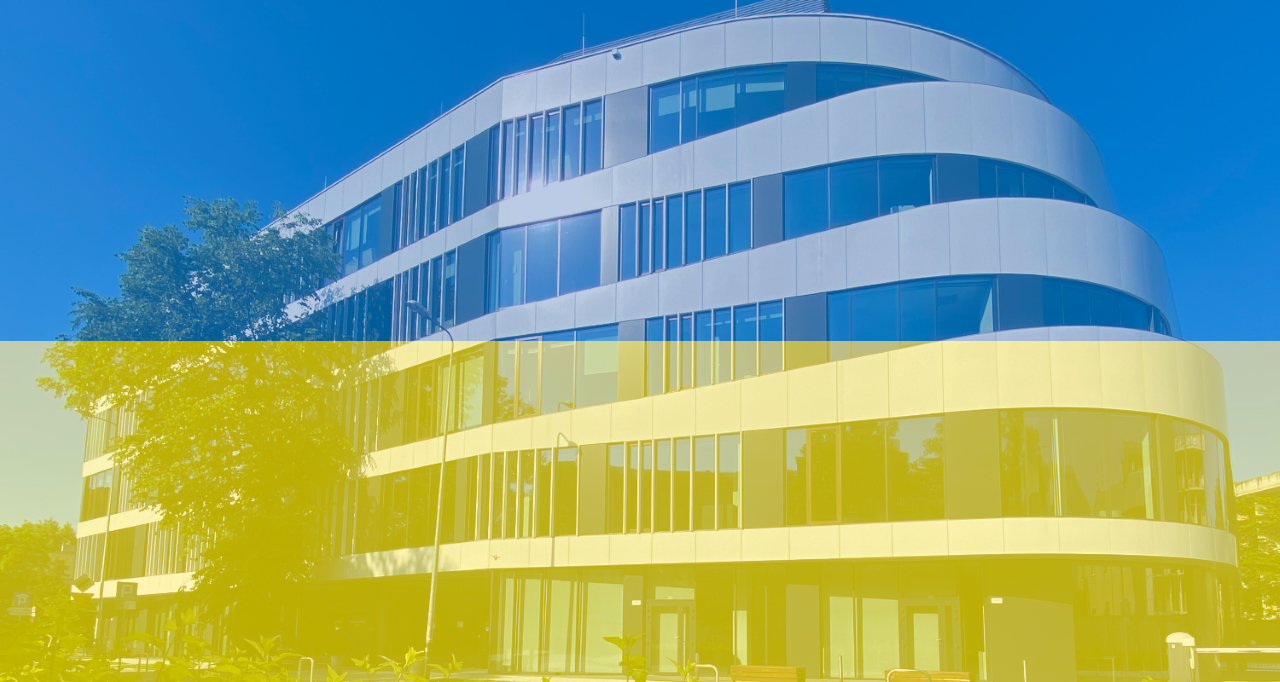PROGRAMME FOR RESEARCHERS FROM UKRAINE
28 березня 2022 року
Анонс програми
ПРОДОВЖЕНННЯ ДОСЛІДЖЕНЬ В ПОЛЬЩІ ДЛЯ ДОСЛІДНИКІВ З УКРАЇНИ
Національний науковий центр оголошує програму, орієнтовану на науковців з України, які внаслідок агресії Росії проти України знайшли притулок або знайдуть притулок у Польщі. Метою програми є підтримка науковців шляхом створення для них можливостей працевлаштування в польських наукових установах та продовження ними досліджень.
Дослідник, який приєднується до програми, повинен відповідати таким вимогам:
- має принаймні ступінь кандидата наук або еквівалентну кваліфікацію (в українській системі Candidate of Science);
- до початку війни працював у науковому підрозділі в Україні;
- внаслідок війни залишив Україну 24 лютого (або пізніше) або має намір залишити Україну.
Працевлаштування наукового співробітника має бути заплановано на 12 місяців на підставі трудового договору на повну зайнятість із винагородою на загальну суму 100 тис. злотих. (включає витрати на оплату праці, включаючи внески на соціальне та медичне страхування, а також інші елементи винагороди, що фінансується даним суб’єктом). Крім того, ви можете запланувати фінансові ресурси для наукового дослідження на суму не більше 30 тис. злотих.
У заяві, окрім вченого, який планує працевлаштуватись, слід також вказати наукового керівника, який працює у заявника і проводить дослідження в тій самій або суміжній галузі, яку представляє дослідник. Науковий керівник дослідника не може бути бенефіціаром коштів, що фінансуються за програмою.
Бюджет програми: 6 млн. злотих
Заявка подається тільки в електронній формі через ePUAP на адресу електронної скриньки ННЦ: /ncn/SkrytkaESP згідно з процедурою подання заявок.
Кінцевий термін подання заявки: 28 березня – 26 квітня 2022 року (до кінця дня)
Результати: рішення про присудження коштів буде прийнято протягом 1 місяця з дня подання заяви до ННЦ. У обґрунтованих випадках термін буде продовжено до 3 місяців.
28 March 2022
Call Text
FOR RESEARCHERS FROM UKRAINE ALLOWING THEM
TO CONTINUE RESEARCH IN POLAND
The National Science Centre is launching a scheme addressed at researchers from Ukraine who took or will take refuge in Poland after the Russian invasion of Ukraine. The purpose of the scheme is to support researchers by creating employment opportunities at the Polish research institutions and allowing them to continue research.
Researchers who meet all of the following conditions are eligible to participate in the scheme:
- hold at least a PhD degree or equivalent degree (in Ukraine: Candidate of Science);
- worked at a Ukrainian research institute before the war and
- left Ukraine on 24 February 2022 or after or is intending to leave Ukraine.
Researchers should be employed full time, pursuant to an employment contract, for a period of 12 months, with total remuneration of 100,000 PLN (including non-payroll labour costs, such as social and health insurance premiums, as well as other remuneration components paid by the institution). Additional funds of up to 30,000 PLN may be awarded for research work.
Apart from the researcher to be employed, proposals must include the name of the mentor employed by the applicant and conducting research in the same or related research field as the researcher in question. The mentor must not be the beneficiary of the funds awarded under the scheme.
Scheme budget: 6,000,000 PLN
Proposals must be submitted electronically via ePUAP to the address of NCN’s electronic delivery box (/ncn/SkrytkaESP) pursuant to the proposal submission procedure.
Call for proposals: The call for proposals will start on 28 March 2022.
Call closed on 26 April 2022
Results: The funding decision will be taken within 1 month of the proposal submission date. In well-justified cases, this period may be extended to 3 months.
Due to significant differences and simplified call procedure as compared to NCN’s regular calls, please read the call documents and information below carefully.
 Who may submit proposals?
Who may submit proposals?
Proposals may be submitted by:
- universities;
- research institutes of the Polish Academy of Sciences operating pursuant to the Act on the Polish Academy of Sciences of 30 April 2010 (Journal of Laws 2019, item 1183, as amended);
- research institutes operating pursuant to the Act on Research Institutes of 30 April 2010 (Journal of Laws 2019, item 1350, as amended);
- international research institutes established pursuant to other acts and acting in the Republic of Poland;
- institutes operating within the Łukasiewicz Research Network;
- Polish Academy of Arts and Sciences and
- research centres of the Polish Academy of Sciences operating pursuant to the Act on the Polish Academy of Sciences of 30 April 2010 (Journal of Laws 2019, item 1183, as amended).
 Terms and conditions to be met by employed researchers
Terms and conditions to be met by employed researchers
Researchers must meet all of the following conditions:
- hold at least a PhD degree or equivalent degree (in Ukraine: Candidate of Science);
- must have worked at a Ukrainian research institution before the war and
- must have left Ukraine on or after 24 February 2022 or must intend to leave Ukraine
Please note: Researcher’s citizenship is not taken into account when reviewing the terms and conditions required to be met in order to join the scheme.
 Are there any restrictions on submitting proposals?
Are there any restrictions on submitting proposals?
Yes, there are. The following restrictions apply to the submission of proposals:
- The applicant must not be under receivership, in liquidation or subject to bankruptcy proceedings.
- The applicant must not be an institution for which project funding constitutes state aid.
- Researcher’s employment under the scheme may only be funded once.
- An employed researcher may be named in only one proposal submitted under the scheme.
- The scheme is open to research proposals.
 Is the subject-matter of proposal pre-determined?
Is the subject-matter of proposal pre-determined?
No, it is not. The main purpose of the scheme is to support researchers by creating employment opportunities at the Polish research institutions, however their scope of work should focus on research.
 How long can a researcher be employed for?
How long can a researcher be employed for?
Proposals should cover full-time employment of the researcher pursuant to an employment contract, for a period of 12 months.
 How can the project budget be planned?
How can the project budget be planned?
Costs in the proposal comprises two components:
- Funds for researcher’s remuneration of 100,000 PLN and
- Funds for research (no more than 30,000 PLN):
- up to 10,000 PLN (no justification needed),
- additional funds of up to 20,000 PLN (justification needed).
The total amount of requested funding must not exceed 130,000 PLN.
Funds for research may be spent on:
- purchase of materials and small equipment (raw materials, semi-finished products, reagents, office supplies, stationery, small laboratory equipment, IT hardware and small office devices (e.g. computers, software licence and software development costs, printers, scanners, monitors, copiers) and other devices;
- outsourcing (costs of purchasing research services: laboratory analyses, statistical repots, surveys, etc.), costs of purchasing other specialist services necessary for due completion of the research visit (proofreading, editing, graphics, consulting, monitoring, etc.), costs of postal, courier and transport services directly related to the completion of a programme, costs of manuscript translation and editing;
- other (cost of purchasing data/ data bases and access thereto, specialist publications/ teaching aids, publication fees of scientific papers, except for fees of publication in hybrid journals and cost of open access to research data pursuant to the NCN’s Open Access Policy ;
- other costs, as necessary, pursuant to the Types of costs applicable to the scheme .
Please note that:
- researcher’s remuneration amount includes non-payroll labour costs (including social and health insurance premiums) and other remuneration components paid by the institution. The funds are also used to pay the end-of-year bonus (thirteenth salary) if the institution is required to pay it. If the proposal is recommended for funding, the institution may pay higher remuneration amount from its funds;
- under the scheme in question, employed researchers will not be subject to regulations preventing them from receiving additional remuneration under other NCN-funded research projects laid down in the regulations adopted by the NCN Council
- funds for research must be planned/paid pursuant to the Types of costs applicable to the scheme. Justifications concerning additional funds for research (up to 20,000 PLN) will be evaluated. Funds will not be awarded or less funds will be awarded if the evaluation is negative;
- funds for research must not be used to cover participation in conferences, workshops, seminars, meetings, courses; costs of visits, consultations and business trips (including allowance and travel expenses); costs of collective investigators, monograph publication costs and dissemination of research and research results (except for publication fees referred to above);
- indirect costs must not be included in the costs.
 Is application for state aid allowed under the scheme?
Is application for state aid allowed under the scheme?
No, it is not. For more information, please go to the State Aid section.
 How to prepare proposals and what should they contain?
How to prepare proposals and what should they contain?
In order to draft a proposal, DOWNLOAD the proposal form and fill it in.
Once the proposal has been completed, it should be appended with the following annexes:
- Annex 1 – Researcher’s CV (in Polish or in English, no page limit): the most important publications; the most important artistic achievements or achievements in research in art (if applicable); information on workplaces, academic fellowships, ongoing projects, prizes and awards; other information crucial to research career;
- Annex 2 – Integration plan and collaboration to date (in Polish or in English; 1 page): work plan aimed at integrating the researcher with the applicant’s academic circles, e.g. involving researchers in research performed by the institution; description of researcher’s collaboration with the applicant to date (if applicable); detailed justification for planning additional funds for research up to 20,000 PLN (if applicable).
PLEASE NOTE: Only complete proposals containing the required annexes will be subject to merit-based evaluation. Proposals are not completed in the ZSUN/OSF submission system, therefore make sure that your proposal is complete before it is submitted.
PLEASE NOTE: The proposal must be signed with a qualified electronic signature or advanced electronic signature of the authorised representative of the institution. The electronic signature must be in line with the eIDAS Regulation, must include a valid qualified certificate and have a PAdES extension. Proposals with signature and required annexes (Annex 1: researcher’s CV and Annex 2: Integration plan and collaboration to date) must be submitted to the NCN pursuant to the proposal submission procedure.
 How are proposals evaluated?
How are proposals evaluated?
Proposals are subject to an eligibility check and merit-based evaluation.
NCN coordinators perform the eligibility checks and merit-based evaluation pursuant to the information provided in the proposals.
Only complete proposals that meet all requirements laid down in the call text are eligible for merit-based evaluation.
Proposals undergo a single-stage merit-based evaluation pursuant to the following terms and conditions:
- each proposal is reviewed by two NCN coordinators pursuant to the proposal evaluation criteria,
- in well-justified cases, the NCN coordinators may consult an NCN Council member on the merits,
- pursuant to the review performed by the NCN coordinators, proposals submitted in a specific week (from Monday to Sunday) are recommended for the list of reviewed proposals;
- the list of reviewed proposals is submitted to the NCN Director and
- the funding decision is taken by the NCN Director pursuant to the list of reviewed proposals.
Proposals on a list of revied proposals that have not been awarded funding are included on the next list of proposals, retaining the same score (agreed decision).
 What is reviewed in the evaluation of proposals?
What is reviewed in the evaluation of proposals?
The following factors are reviewed in the course of merit-based evaluation:
- researcher’s qualifications and achievements;
- work plan aimed at integrating the researcher with the academic circles of the applicant;
- researcher’s collaboration with the applicant to date (if applicable);
- justification for awarding additional funds for research (Funds will not be awarded or less funds will be awarded if the evaluation is negative).
The proposal shall be evaluated pursuant to the evaluation criteria.
 When and how are the call results announced?
When and how are the call results announced?
The funding decision will be made within 1 month of the date of proposal submission to the NCN. In well-justified cases, the funding decision may be taken within 3 months.
If funding is awarded, the applicant will be notified thereof as soon as possible.
The NCN Director’s decision cannot be appealed against.
 Where can additional information be found?
Where can additional information be found?
Should you have any questions or queries, please contact us by e-mail:
Proposal Processing Department
Coordinators:
Anna Wiktor, e-mail: anna.wiktor@ncn.gov.pl
Tomasz Szumełda, e-mail: tomasz.szumelda@ncn.gov.pl
Documents
- Resolution on the terms and regulations of the scheme
- Types of costs applicable to the scheme
- Proposal form to be download
- Proposal submission procedure
- State aid
- Code of the National Science Centre on research integrity and applying for research funding
- NCN review panels
- NCN’s Open Access Policy
Documents applicable to the evaluation of proposals
Dokumenty, z którymi należy się zapoznać przed rozpoczęciem pobytu badawczego





